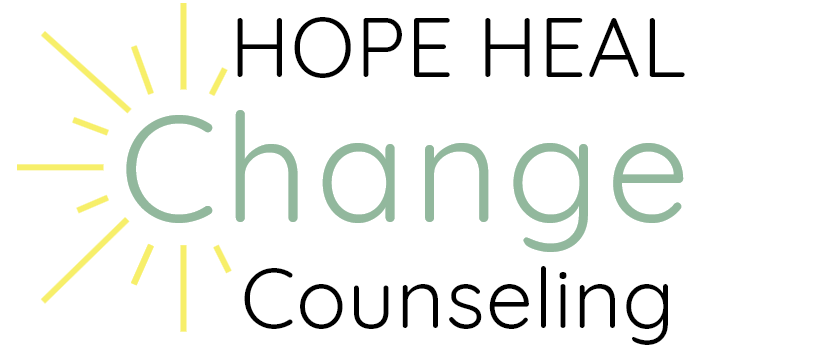
by Josh Jostock, Founder & Therapist
I remember asking one of my mentors during graduate school, Judy, if being a therapist made life more difficult at times. I believe that to be aware is to often suffer. Hence, people latch on to their own truths and certainties because it turns unknowns into knowns. Judy responded, “Being a therapist has made my life so rich.” Oh how right she was. It’s not all peaches n’ cream, but being the keeper of stories and constantly learning through intimate therapeutic relationships has made my life incredibly rich and I can’t imagine myself doing anything else for a career. The learning just never stops.
Coming up with the list below took time because I’ve learned a lot about life since being a therapist. So, these aren’t the only 5 things that I have learned. However, I think these 5 things will be most helpful for people reading that don’t work as a mental health therapist. None of this is ground-breaking or new, but I’d like to offer my commentary nonetheless and I assume if you’re reading my blog, you might have some interest in seeing the world through my glasses. So here are my top five things I have learned since becoming a therapist.
Self-Hate is not the vehicle for sustained change
In the short-term, self-hate might help you accomplish a goal. Like losing weight for a wedding, cramming before an exam or stopping a bad habit. You might say, “Ugh, I’m so sick of being this way. Here’s what I’m going to do because I hate being this way.” And you might hit a short-term goal. However, I have learned that if you’re looking for sustained change, self-hatred will eventually drown any progress made.
Instead, I invite people to build a healthy and positive relationship with themselves. Because let’s face it, if you were sitting at a bar with your friend and you said, “I just hate that I can’t talk to my brother about this thing that’s bothering me,” you probably wouldn’t respond with, “Yeah… you suck!” No… a good friend would come from a place of support, empathy and encouragement. Yet, we tend to talk to ourselves in a very nasty tone. Building a healthy relationship with ourselves is difficult and requires persistence. And, like any relationship, it requires maintenance. It’ll ebb and flow through different seasons; however, I have seen clients achieve a great relationship with themselves and that’s when the big, amazing changes happen.
Ultimatums, while tempting sometimes, are a recipe for emotional distance
Ultimatums can be so tempting to leverage in relationship—“Either you go to therapy or I’m leaving.” An ultimatum is another way that we try to make the unknown, known. “Either they are going to stop drinking or I’m not going to talk to them anymore.” Here’s the thing though: an ultimatum leverages fear. In a relationship, when we are operating out of fear, it often breeds very negative outcomes like resentment, anger and hate. Moreover, people often feel abandoned when they are given an ultimatum and emotional distance can grow rather quickly.
Instead of an ultimatum, I encourage clients to explore setting boundaries or use creative problem solving. Great boundaries don’t have to be in “all or nothing” terms. Great boundaries are lovingly communicated and maintained. Even more, the best boundaries come from a place of love and self-respect. An example of a healthy boundary might be communicating to a loved one that when they talk about your physical body, it makes you very uncomfortable. So, you might gently request that conversations surrounding body and body image be handled with gentleness and respect. IF the person is unwilling or incapable (or both) of following those guidelines, then we assertively enforce the boundary by saying something like, “I’m unwilling to talk about this topic in this tone or space,” or, “I’m feeling uncomfortable with how this conversation is being handled and I think it’s best if we stop here.”
Getting better is difficult for a lot of different reasons
Firstly, some of the challenges we face have been rooted decades ago and we have a system that has defaulted to something that is really hard to break. Many of our thoughts and feelings are automatic. Often times, we are attempting to not only uproot that system, but rebuild it in a better way. Then, when things get tough, it’s easy to revert right back to the old system because it’s what we know.
Secondly, getting better isn’t linear and requires upkeep and maintenance. It’s a messy process that forces us to look at ourselves in the mirror. Self-improvement comes with saying the hard stuff out loud. And since we are great at avoiding discomfort or getting out of it, therapy can be the hard way.
Lastly, getting better and growing means saying goodbye to other things. For instance, when clients get better and maintain their well-being, they often have to say goodbye to their therapist. They might have to say goodbye to other people or hobbies or certain habits. In other words, with growth certainly comes loss.
So, if you find yourself frustrated with not being able to get better or having a loved one struggle to get better—remember, this isn’t easy. If it were, we’d all be just dandy already.
Our childhoods have everything to do with our present day lives
It’s cliche’ but usually true. The messages we received from our parents and others in our childhood usually informs our worldview. Moreover, we get constant feedback as kids on how to navigate the world. This feedback that we are getting is coming from people that are just like us: flawed. So how we are soothed, how we handle conflict, how we react to big emotions, if we even talk about feelings, has a lot to do with what we saw and heard growing up.
I could provide countless examples of this. And sometimes it’s “monkey see, monkey do” and other times it’s “monkey see, monkey never do”. If we were physically hit as children, we might have a strong stance against things like spanking or corporal punishment. Maybe not. If our parents discouraged crying because it’s “weak” we will grow to have an interesting relationship with emotional release.
So, yes. I have learned that my childhood, and our childhoods, have everything to do with my present day. But If I work on self-understanding and where all of it started, comes from and how it plays out now… I can make the desired adjustments.
Kindness and Encouragement are the things that really stick with people
I’ve learned that my patients don’t care, nor ask, about my academic journey. They don’t care how well versed I am in any given therapeutic method. I think what sticks with most of my clients, and most of us in general, is how they were treated by me, they’re therapist. I try to treat each patient with warmth, empathy, encouragement and love because I believe that those are the best vehicles to get to true and sustainable change.
When I’ve asked clients how come they’ve decided to continue their therapy with me, I’m often flattered by the kind words: nice, non-judgmental, genuine, safe, gentle, etc. And when my client and I have great regard for each other and treat each other well, it creates a safe ground to also challenge one another. And to challenge in a way where defensiveness either doesn’t enter the picture or it can be quickly worked through.
If we think about our favorite teacher or person in our life, it’s usually a person that made us feel prized, special and loved. I’ll leave you with Maya Angelou’s famous quote: “People will forget what you said. They will forget what you did. But they will never forget how you make them feel.”
Thank you for reading,
Josh
